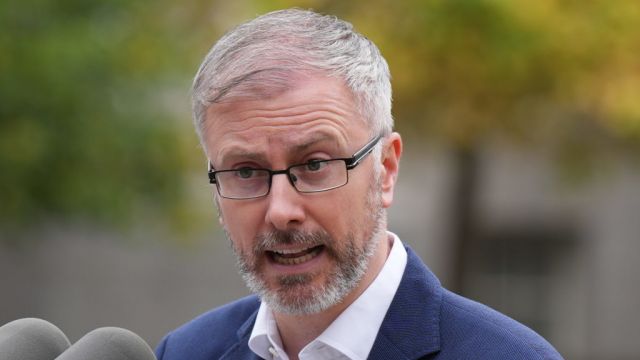The State is spending an average of €2.63 million per day in 2024 to accommodate the growing number of International Protection (IP) applicants arriving in Ireland.
New figures provided by the Minister for Integration, Roderic O’Gorman, show that the spend in accommodating IP applicants to October 11th this year is €748.87 million as the number of IP applicants arriving here this year is projected to be 69 per cent ahead of 2023 figures.
In a written Dáil reply to Peadar Tóibín (Aontú), Minister O’Gorman reveals that the 2024 spend already outstrips the total outlay for 2023 when the State bill for accommodating IP applicants came to €651.7 million.
If the State spending for accommodating IP applicants remains at the same level for the remainder of the year, the total 2024 bill is projected to amount to be around €960 million.
The average daily spend of €2.63 million compares to an average daily spend of €1.78 million in 2023.
The €748.87 million spend to date for 2024 is more than double the €353.7 million spend for 2022 and almost four times the €190.8 million spend for 2021.
In his written response, Minister O’Gorman stated: “Over recent years, Ireland, alongside many other EU Member States and other countries, has experienced a very significant increase in people seeking International Protection (IP).
He said: "The Government and this Department is making every effort to accommodate people seeking international protection against this backdrop of unprecedented demand. This is part of Irish and EU law and is also part of our humanitarian duty to provide shelter to people fleeing war and persecution in their home country.
Minister O’Gorman said: “At the moment, there are over 32,000 people accommodated in the International Protection Accommodation Service (IPAS) system, of whom approximately 9,000 are children.
He said: “At the end of August 2022, by comparison, our system was accommodating approximately 7,000 people.”
He said that “the increase in costs over recent years aligns to the increased numbers of people needing accommodation.”
Mr O’Gorman has separately stated that last year, around 13,000 IP applicants arrived here and “we estimate that by the end of this year, we will see 21,000 or 22,000 arrive”.
He said: “There has been a significant jump in the number of arrivals and therefore a jump in the number of people we have to accommodate.
Mr O’Gorman said that the annual totals provided include all accommodation and related costs, including transport, facilities management and other related expenditure.
Mr Tóibín also sought the fees paid to the ten largest suppliers of services, construction and property in each of the past five years concerning IPAS accommodation.
However, in reply, Minister O’Gorman stated that “contractual arrangements between the Department and external providers are considered commercially sensitive".
He said: “In order to preserve the department's negotiating position, the costs paid to providers are not published, as making this data available to other accommodation providers would not serve the public interest.”
Mr O’Gorman did confirm that Government departments do publish online reports detailing Purchase Orders (PO) relating to payments for goods, services or works procured to a value greater than €20,000.
In a separate discussion before the Select Committee on Children and Youth Affairs on Wednesday, Minister O’Gorman explained why his department requires additional funding of €674 million for IPAS related costs in 2024.
He said: “Increased numbers continue to be the principal driver. In addition, the asylum and migration integration fund continues to advance a new round of funding while closing out the previous round is experiencing cost pressures.”
He added: "In contrast, there are savings across a number of areas in my Department, principally in respect of the Ukraine division, where new policy measures in 2024 and reductions in the number of arrivals have resulted in a reduction in costs, leading to anticipated savings of €218.8 million.”







